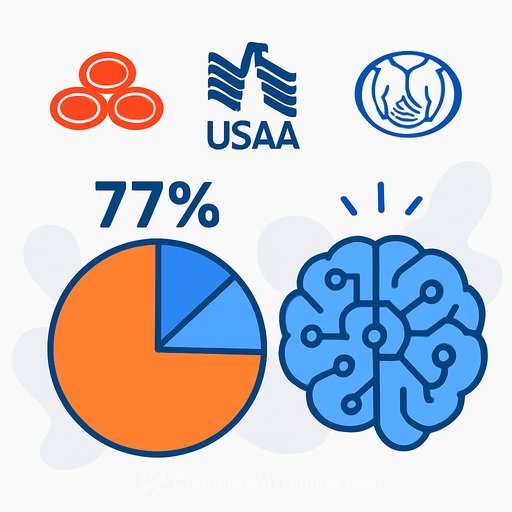Improving Organizational Data Practices to Leverage AI
Spring is a season of growth and preparation, and life insurance organizations can draw a useful parallel from gardening. Just as healthy soil is essential to cultivate strong plants, quality data forms the foundation of a successful life insurance business. You can’t simply plant seeds and hope for a harvest; you need to nurture and maintain the environment. The same principle applies to managing your data and technology investments.
Properly maintained data transforms into a strategic asset that offers new business insights, streamlines operations, and delivers the personalized digital experiences that advisors and customers expect. It also enables the effective implementation of advanced technologies like artificial intelligence (AI). However, research shows that 78% of global life insurers see data readiness as the biggest hurdle to gaining value from AI, and nearly half feel unprepared to implement AI given their current data state. Addressing data challenges is critical to unlocking AI’s full potential, which could reduce industry costs by as much as $300 billion, according to ACORD.
Focus on Data Controls
Data controls are the processes, policies, and technologies that maintain data quality, security, integrity, and compliance throughout its lifecycle. These include governance, quality, access, and compliance controls. Given that life insurance data often involves sensitive medical and financial information, weak controls expose organizations to risks such as fraud, reputation damage, inaccurate underwriting, and poor customer experiences.
Effective data controls start with evaluating current practices and addressing quality issues. AI-driven data quality automation can identify and fix problems more efficiently than manual methods by spotting patterns and anomalies. Additionally, data lineage tracking tools provide visibility into data’s origin, transformations, and usage, enabling reliable validation. Integrating detailed metadata—covering context, ownership, and usage rules—also helps insurers locate and extract value from their data.
Manage Data Governance
Consistent enforcement of data governance policies and clear accountability are key to improving data quality. Expanding data stewardship programs with defined roles equips stewards to manage data assets and enforce rules effectively. One common challenge is ensuring governance standards are uniformly adopted across the organization. Assigning and reinforcing responsibilities allows leadership to hold teams accountable.
Automated governance tools—such as policy enforcement, data cataloguing, and compliance monitoring—can support consistent policy adherence. Regular audits of governance practices help identify gaps and adapt policies to changing business and regulatory needs.
Comply with Data Standards
Maintaining strict data standards ensures consistency and integrity across integrated data sets. These standards help detect inconsistencies and guide remediation efforts. Investing in real-time data infrastructure means data is immediately accessible without needing modification before integration, ensuring timely availability and proper structuring for downstream use.
Foster Continuous Data Improvement
Data improvement efforts work best when approached incrementally rather than all at once. Adopting a continuous improvement mindset—similar to the "Kaizen" philosophy—allows organizations to adapt and evolve effectively. Enhancing data literacy, awareness, and accountability through training empowers everyone in the organization to contribute.
Regularly reviewing and updating data management policies ensures they remain relevant. Continuous data profiling and monitoring provide real-time insights into quality metrics, enabling proactive identification and resolution of issues.
AI is the Future, So Don’t Let Your Data Hold You Back
AI will soon be integral to all aspects of life insurance operations. Its impact could be as transformative as the internet, but it depends on a solid data foundation that is accurate and adaptable. By strengthening data controls, governance, standards, and continuous improvement, insurers can prepare their data to fully benefit from AI and other emerging technologies.
For insurance professionals looking to build skills in AI and data management, exploring targeted AI courses by job role can provide practical knowledge to support these efforts.
Your membership also unlocks:






